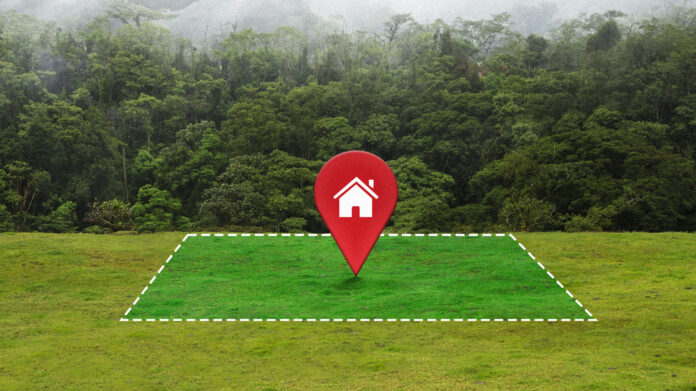The Problem is Everyone Wants to Buy Land, But Few Know What They’re getting into.
Every day, you hear people talk about “owning land” as the fastest route to building wealth in Nigeria. From family WhatsApp groups to Twitter threads and real estate seminars, the message is loud and clear: “Buy land now before it becomes unaffordable!”
But here’s the truth:
Buying land in Nigeria isn’t as straightforward as it seems.
Yes, land investment can turn ordinary people into millionaires, but it has also left many in endless legal battles, sleepless nights, and heavy financial losses. From “Omo Onile” harassment to unclear titles, from sudden government acquisition notices to dry lands sold as “dry but swampy,” the risks are real.
So, the burning question is, is buying land in Nigeria still a smart move in 2025?
Let’s find out.
Understanding the Pros and Cons of Land Investment in Nigeria
Why Nigerians Are Still Rushing to Buy Land (The Pros)
✅ 1. High Return on Investment (ROI)
Land rarely depreciates. In areas like Lekki, Port Harcourt, Abuja, and Enugu, plots bought for ₦500,000 a decade ago now sell for over ₦15 million or more. That’s the power of real estate appreciation, especially in developing or urban-fringe areas.
✅ 2. Long-Term Wealth and Security
Owning land gives a sense of permanence and legacy. You’re not just investing for yourself, you’re securing a future for your children. It’s one of the most respected forms of generational wealth in Nigerian culture.
✅ 3. Flexibility of Use
Whether you want to build a home, develop commercial property, or just hold for future resale, land is versatile. Some investors buy and lease their plots for agriculture or event use while waiting for the value to increase.
✅ 4. Low Maintenance Costs
Unlike houses or apartments, land doesn’t require upkeep. No plumbing, no roofing, no repairs. Once you buy and secure it properly, your holding costs are minimal.
✅ 5. Hedge Against Inflation
As inflation rises in Nigeria, naira loses value, but land doesn’t. In fact, as construction, population, and demand increase, land prices go up. It’s one of the best inflation-proof assets you can hold.
But Not All That Glitters Is Gold (The Cons)
⚠️ 1. Land Scams and Title Issues
This is arguably the biggest fear among Nigerian land buyers. Many plots are sold without proper documents like the Certificate of Occupancy (C of O) or Deed of Assignment. In some cases, the land belongs to the government or is under litigation, but the seller won’t tell you.
⚠️ 2. “Omo Onile” Wahala
Especially in Lagos and Port Harcourt, the infamous Omo Onile groups and Ikwerre boys demand illegal fees even after you’ve paid the real seller. From foundation levies to roofing levies, they’ll frustrate you if you’re not prepared.
⚠️ 3. Lack of Infrastructure
Many affordable lands are located in undeveloped areas with no good roads, electricity, or water. You’re basically paying for the future and that future might take a decade to arrive.
⚠️ 4. Land Use Restrictions and Government Acquisition
Some plots fall under “government-acquired” areas or have been earmarked for public use. If you unknowingly buy such land, you could lose it no refund, no compensation.
⚠️ 5. Cost of Legal and Physical Verification
To truly protect your investment, you’ll need to hire a lawyer, pay for survey plans, and conduct proper verification at the Land Registry. All these costs add up quickly.
Key Things to Consider Before Buying Land in Nigeria
If you’re ready to buy land in Nigeria, keep these tips in mind:
Location is Everything: Invest in growing areas near infrastructure or government projects (e.g., airport, new roads, estates).
Verify the Title: Only buy land with clear documentation C of O, Governor’s Consent, Registered Survey, etc.
Engage Professionals: Always work with licensed real estate agents, lawyers, and surveyors.
Physical Inspection is a Must: Don’t rely on pictures or Google Maps. Visit the land and ask locals questions.
Budget for Development Fees: Even after buying, you may need to fence, clear, or level the land.
Final Thoughts: Is Land in Nigeria Worth It?
Investing in land can be a lucrative venture, especially in a country as vibrant and diverse as Nigeria. With its rapidly growing population and urbanization trends, purchasing land in Nigeria presents both remarkable opportunities and formidable challenges.
Whether you’re a first-time buyer or a seasoned investor, the key to success lies in knowledge and due diligence. Don’t let fear stop you, just be informed. By understanding the real pros and cons, you’re in a better position to make smart, profitable decisions.
Are you Ready to Buy Land in Port Harcourt or anywhere in Nigeria today?
At WinRealty, we help everyday Nigerians like you make safe, affordable, and verified land investments in Port Harcourt and beyond.
Contact us today to see our available plots, schedule a site inspection, or ask us any questions!

